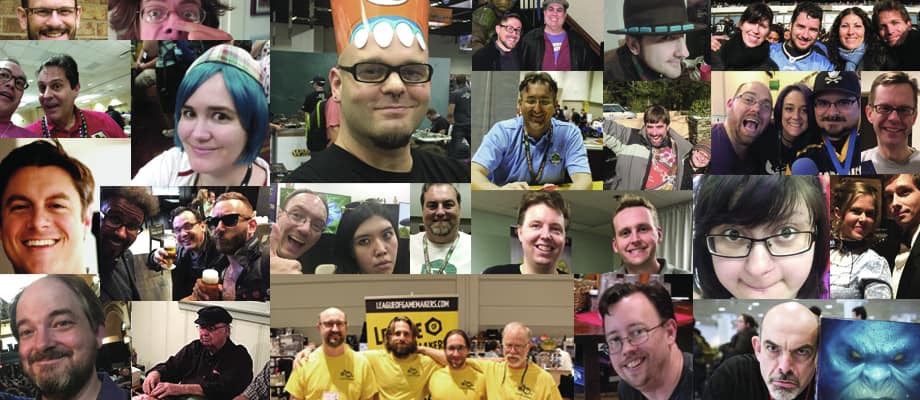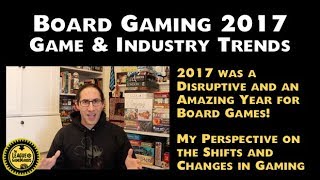
Recently my wife and I watched a movie entitled “The Watsons Go To Birmingham” In this movie the family lives in Flint, Michigan and all but the mother are native to Michigan. The movie is set in the time of the Civil Rights movement led by Martin Luther King, Jr. To acquaint the kids with their mother’s roots they take a vacation trip to her home town of Birmingham, Alabama where they have mind opening experiences such as when the children are refused service at a “Whites Only” café, and being directed to the side door entrance that leads to the balcony of the local movie theatre. The movie shows the experiences of the different children strengthening the family bonds.
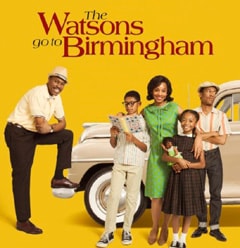
TABOO TOPICS FOR GAMES?
After the movie my game designing mind started wondering what if I designed a game set in those turbulent times of the Civil Rights movement. What if there was one faction which was negro, another faction which was white sharecroppers… and in mid-thought I got sidetracked by questioning Is social awareness an appropriate factor in a game of entertainment? Is the board gaming community primarily interested in entertainment or is there a segment of gamers interested in addressing social issues? Social awareness to me means issues such as racial & gender equality, industry vs environment and military vs diplomacy. That brought to mind a TED talk given by Brenda Romero which addressed this subject.
BRENDA ROMERO AND ‘MECHANIC IS THE MESSAGE’

BRENDA ROMERO is primarily a video game designer of titles such as Wizardry. She has designed social and mobile games with her husband John Romero at Loot Drop; as well as been a game designer in residence at the University of California, Santa Cruz’s Center for Games and Playable Media.
In the TED talk she related an experience of one day asking her seven year old daughter: What had she learned in school that day? Her daughter responded in a typical kid fashion: We learned about the Middle Passage.
Romero moving the conversation along asked: What was that about? The daughter casually said: Oh, the ships left England and went to Africa. Then they sailed across the sea to America to deliver the slaves. The daughter paused and then said: Can we play a game?
Romero then commented to the audience that: To her daughter the Middle Passage was like a bunch of black families taking a cruise. She quickly put together a simple little game which represented the Middle Passage with these rules:
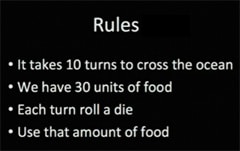
The daughter after a few rounds of rolling high numbers realized that they were not all going to make it. She asked: Did this really happen? Romero went on to make a more polished version of the game which she called The New World as part of a six game series she used in talk presentations.
 The New World
The New WorldAnother game in that series of talks on the subject of social awareness was Train in which the players read typewritten instructions. The game board is a set of train tracks with box cars, sitting on top of a window pane with broken glass. There are little yellow pegs that represent people, and the player’s job is to efficiently load those people onto the trains. A typewriter sits on one side of the board. At some point, they turn over a card that has a destination for the train. It says Auschwitz. At that point, it dawns on the player that they have been loading Jews onto box cars so they can be shipped to a World War II concentration camp and be killed in the gas showers or burned in the ovens. When the players find out that the train is going to Auschwitz, there is a clear sense of shame. Sometimes they cry. Sometimes they feel hate. The key emotion that Romero said she wanted the player to feel was “complicity.”

She called her talk series project The Mechanic is the Message designed to raise the question: can game designers actually capture difficult emotions the way music and film and photography do, but in the mechanics themselves? There is no easy way to explain why such games as The New World and Train should exist, and it’s certainly unlikely anyone would ever agree to sell them. There’s no indication that Romero proposes that commercial games should push the boundaries to this extent of what designers & publishers would consider to be entertainment experiences.
OTHER EXAMPLES
I recently saw on BoardgameGeek a new game on Kickstarter Political Suicide: The Donald Trump Edition which is described in the BGG listing as: …a card game of brutal and heart-pounding political carnage, where players struggle to avoid the greatest suicides of our time while bringing down the political opposition. As a caveat I should say the only knowledge I have of this game is the BGG listing. However, it appears to raise the question about Campaign Social Behavior for the purpose of arousing controversy for promotional benefits raising the question as to is it responsible game design and publishing?

One of my favorite games that has been well received Freedom, the Underground Railroad is generally considered to handle with sensitivity the social issues associated with the abolition of slavery in the 1800s United States. The social awareness is brought to bear in the theme of the game design more so than in the game mechanics themselves. Comments are often heard that the game design handles issues that did exist as a dark spot on early American history in a sensitive manner that is still challenging and enjoyable to play. The game mechanic of manipulating the slave catchers and the effects of the abolitionist cards blend well with the overall theme, but there is no moral dilemma in choices which should always be in favor of freeing as many slaves as possible.
 Academy Games Freedom: the Underground Railroad
Academy Games Freedom: the Underground Railroad
Another example of social awareness being incorporated into a game design is the recently Kickstarter funded The Manhattan Project: Energy Empire. The BGG Listing states this about The Manhattan Project: Energy Empire: “The major threat in Energy Empire is not war, but uncertain global impacts, that result from side effects of industrialization and pollution.” Social Awareness in this game is not so much the driving factor in the theme, but rather a factor that has great impact on the game mechanics. The player’s choices in deciding their actions when industrializing must be weighed against the impact those actions have upon pollution. Thus the player has moral decisions to make.
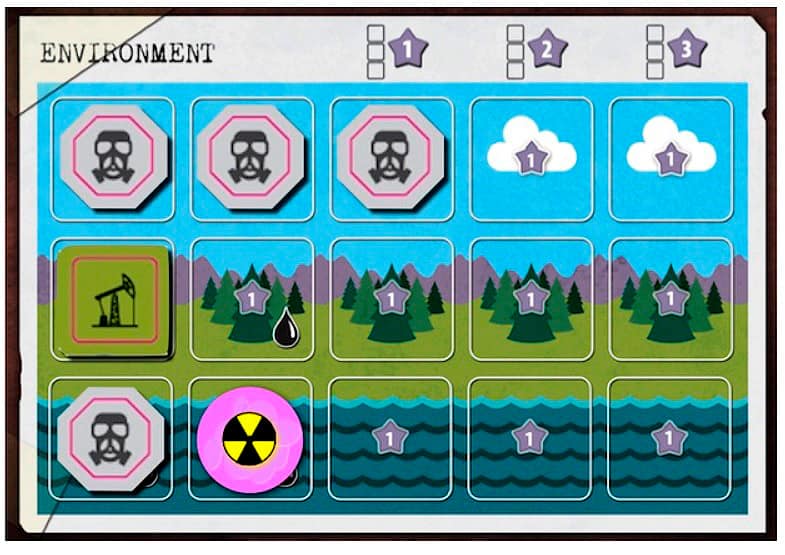
CONCLUDING THOUGHTS
I would not like to see this thread go down the path of first amendment freedom of speech controversy. Rather, does social awareness and its impact belong in responsible game designers and publishers’ entertainment game designs? So what do you think:
“IS SOCIAL AWARENESS AN APPROPRIATE FACTOR IN A GAME OF ENTERTAINMENT?”
—
ADDITIONAL RESOURCES
Want more info on Train –
Train
For more information on The New World, The Middle Passage and Brenda Romero go to this less than 10 minute TED talk:
The New World
For more info on Energy Empire –
The Manhattan Project: Energy Empire

